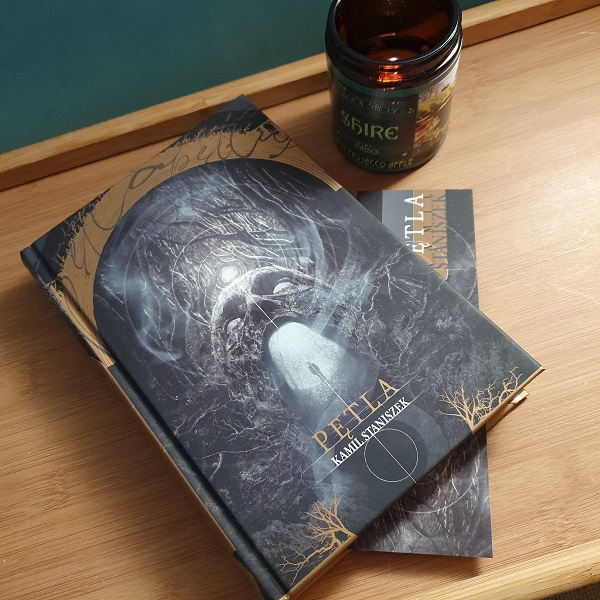If you would like to run away, go to your grandparents
The main character of Staniszka’s Loop has just been abandoned by the “perfect woman” … No, sorry, it’s been two years since it happened, but he still can’t stop thinking about her and their (of course, ideal) relationship. In his inner monologue you will hear a lot of big words which the maniac stubbornly dresses up in his experiences. As he cannot cope with life, he decides to end it … or to cut himself off from everything and hide in the village where his grandparents invite him.
A small town, cut off from the world, will immediately strike you with its peculiarity – time seems to have stopped there. I don’t know if the author intended to raise the reader’s doubts subtly and gradually; In my opinion, one quickly catches the trail of a key twist: what is happening with grandparents, who are the neighbors, why so many understatements. Only the protagonist will not realize, going from backyard to backyard, meeting old acquaintances, and listening to gossip from his childhood. Gossip, which will slowly reveal to him the truth not only about the settlement itself, but also about what, years ago, seemed to be a terrible accident.
In this book, everyone and everything is quite disgusting – ancient evil and cruelty are personified by the villagers, after all, they remain close to nature, and the human one is fundamentally evil. Fortunately, after a few chapters, it turns out that townspeople are also nasty, and the only bright characters are the hero and his sister. And the first one can still… surprise you? Could the sudden, negative plot twists in a story showing how ugly life is surprising?

What is actually looping?
You guessed it, the hero tried to hang himself and thus end the poor existence of the abandoned. However, the title is also intended to describe the construction principle of the book. In fact, the chapters circulate between the cruel village and the debauched city, the threads intertwine and tighten.
Meanwhile, what happens with a bad woman? Well, he attends nouveau riche erotic parties. Sex is not only quite nasty with Staniszek, but in some way it is connected with everything that is ugly, hidden and broken in people. This thread is annoying, although it could provoke reflection – after all, it is one of the possible interpretations of the film Titane , which was widely discussed long before its premiere. In Loop , however, there are no doubts or reflections, basically interpersonal relationships are terrible, and those leading to rapprochement are utter horror.
In fact, I wouldn’t have had much trouble with Staniszek’s vision if it weren’t for the style in which this book is written. It is a language completely devoid of tenderness, naturalistic, lofty names of feelings, but not showing them. Full of literalness, but not evoking any more emotions in me than irritation with the main character. And this is probably the answer to the question I asked at the beginning – the mood is key, and this is evoked by the description and “stretching” the recipient to sympathize with the characters. Impressions are not improved by the final binding of the action – it should be much more technically refined to convince us that the whole thing is closed not only in terms of metaphor, but also logic.
The book, like everything from the Vesper publishing house, is beautifully published, great illustrations by Michał Loranc would deserve some other version of contemporary peasant literature. This is the only tender, emotional part of the Loop . In addition, they play beautifully with chiaroscuro and very rarely see elements typical of horror or weird fiction – these appear only on the cover and the last few drawings.

